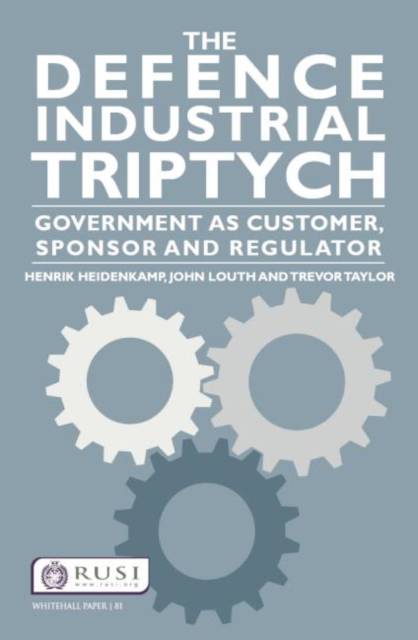
- Retrait gratuit dans votre magasin Club
- 7.000.000 titres dans notre catalogue
- Payer en toute sécurité
- Toujours un magasin près de chez vous
- Retrait gratuit dans votre magasin Club
- 7.000.0000 titres dans notre catalogue
- Payer en toute sécurité
- Toujours un magasin près de chez vous
The Defence Industrial Triptych
Government as a Customer, Sponsor and Regulator
Henrik Heidenkamp, John Louth, Trevor TaylorDescription
The relationship between government and the businesses that contribute towards the defence and security of the state is a critical one; it often underscores a modern state's foreign policy and sense of place in the world. Yet, despite its clear importance, this subject is underexplored and rarely analysed in a rigorous manner. As a consequence, government defence industrial policies, if they exist at all, often seem somewhat contrived, ill-considered and contradictory.
The Defence Industrial Triptych systematically analyses the components and drivers of the relationships that bind a government to its defence industrial base by examining three major case studies: the UK, US and Germany, who between them account for over three quarters of NATO defence spending. The features of their defence industrial relationships -whether common or unique - provide vital lessons for policy-makers, industrialists and the taxpayer. As defence cuts bite across NATO and as the UK approaches the 2015 Strategic Defence and Security Review, the relationships this Whitehall Paper considers are more important than ever.
Spécifications
Parties prenantes
- Auteur(s) :
- Editeur:
Contenu
- Nombre de pages :
- 164
- Langue:
- Anglais
- Collection :
- Tome:
- n° 81
Caractéristiques
- EAN:
- 9781138023581
- Date de parution :
- 31-12-13
- Format:
- Livre broché
- Format numérique:
- Trade paperback (VS)
- Dimensions :
- 155 mm x 231 mm
- Poids :
- 317 g

Les avis
Nous publions uniquement les avis qui respectent les conditions requises. Consultez nos conditions pour les avis.






